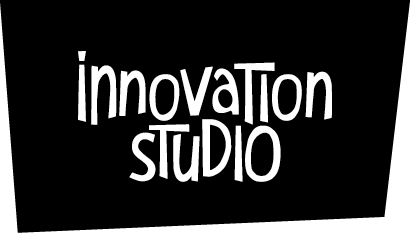New Year Update
Over the past few months, we have been taking stock of the insights and impressions that have emerged throughout Innovation Studio so far (see Miro board for a flavour). Since September 2022, we have been joined by Leonie Rae Gasson and Lora Krasteva - two brilliant Innovators in Residence, who have prompted important questions around process, and what innovation can look like within our community.
Following conversations and exploration, we have slowed the pace of the Studio down a little, to create space for Lora and Leo to have conversations with our community here at the Conservatoire. This has also given us more time for research and exploration around our themes before we launch the Placemaking and Creative Health challenges. Funding opportunities are likely to open again in May, but we will confirm all of that in the coming weeks and months.
Through this research and discovery phase, we are aiming to identify and map the many existing connections between the RCS and the wider external community in areas relating to Creative Health and Placemaking. This will help us to get a sense of the sheer scale of activity that is already underway in big and small ways and help to form a clear picture of how artists at the Conservatoire already contribute to these themes, which are prioritised by most public funding bodies at present.
This work will also help us to further develop the format of Innovation Studio’s Civic Fund (Click here to see the first round of funded projects), deepen our connections with Civic Partners, and appoint a Steering Committee, which will shape and impact the future of Innovation Studio at the Conservatoire beyond our Pilot project. Our hope is that the Research phase will be a vibrant, engaging time for collective learning.
Exploring Innovation with our Innovators in Residence
On Monday the 21st of November, we had an online roundtable discussion with our Innovators in Residence, in which they introduced their work and practices and discussed what Innovation means to them. The event was facilitated by Suzy Glass, who opened the discussion by doing a temperature check of the room on how people understood the term Innovation. Most people felt that, while they didn’t have a strong understanding of what Innovation means, they still felt that they bring Innovation into their work and ways of working.
Leo spoke about how framing something as ‘Innovation’ can give your projects and work a sense of agility, which is otherwise not permitted. Innovation legitimizes failure and exploration, and offers a clear framework for funding bodies, by which to understand it. This is so important, because things will only transform if people are allowed to experiment - if we are doing the same things with the same people in the same way, then change is not going to happen. This is also the purpose of the Innovation Studio pilot – to develop a space in which new practices, new collaborations, and new methods of co-creation can emerge.
Lora also raised the point that while creative failure and experimentation is important, there are times when failure is not ok – that is, when we fail others. Social systems are built on white privilege and class privilege, and this means that the failure of institutions and organisational bodies can exacerbate inequality. While the cultural sector both reflects and perpetuates wider inequalities, there also exists a kernel of creativity, which can be extremely powerful in effecting change. As Suzy said, it is important for those of us who can, to hold on to what it means to take good Innovation practice into the wider social environments that we operate in.
There are many ways to define Innovation and it does seem to be an inherently plural space - it holds differences and contradictions and disrupts the status quo. Leo used the metaphor of a bowling alley to describe Innovation; that is, if one person throws a ball, it will travel from point A to point B. Whereas, if several people throw balls, the balls will bounce and ricochet off each other, changing each other's course and direction, and resulting in an unknown end point.
If you want to watch the discussion back, or if you want to share your own ideas on Innovation, visit the Innovation Studio Miro board (An online digital whiteboard).
If you have any questions about the programme, or if you want to chat about an idea you might have, please don’t hesitate to get in touch! You can contact the Innovation Studio team at innovationstudio@rcs.ac.uk. You can also book a meeting with the Innovators in Residence via Calendly.
We hope to hear from you!
Sign up for our newsletter
Sign up for our newsletter to keep informed about Innovation Studio.

